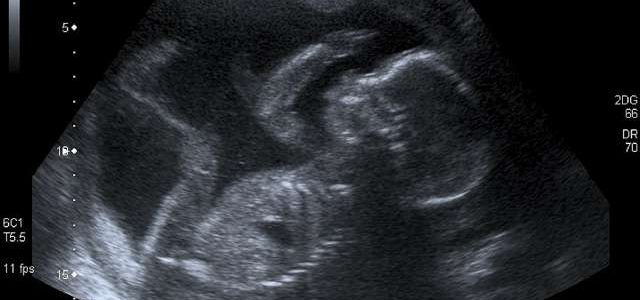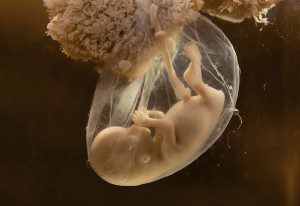
On Tuesday, October 3, 2017, the U.S. House of Representatives passed H.R. 36, the Pain-Capable Unborn Child Protection Act.
This legislation would protect unborn children from abortion after five months (20 weeks). Abortions after this mark would be prohibited, except in the cases of rape, incest, or threat to the life of the mother.
Recent nationwide polling has shown that a majority of Americans are in favor of restrictions on abortion after 20 weeks.
Pro-life Illinois Congressman Dan Lipinski (IL-3) voted for the bill, along with the members of the Illinois Republican Delegation, including pro-life Congressmen Peter Roskam (IL-06), John Shimkus (IL-15), Randy Hultgren (IL-14), Rodney Davis (IL-13), Adam Kinzinger (IL-16), Darin LaHood (IL-18) and Mike Bost (IL-12).
This all comes in the wake of Illinois Governor Bruce Rauner signing the abortion expanding bill HB40. In response to his action, the Delegation released the following statement:
“Henry Hyde championed the rights of the unborn through the Hyde Amendment, which expressly prohibits federal funding for abortions. According to the U.S. Centers for Disease Control and Prevention, from 2005 to 2014, the infant mortality rate in the United States dropped 15 percent. Much of this progress can be attributed to technological advancements in medicine that gives children born prematurely and with various medical issues a fighting chance. H.R. 36 protects children like Micah Pickering who was born at 22 weeks and is a thriving toddler today. Read his story here.
“In a reversal of long-standing Illinois policy, Governor Rauner has let down Illinois taxpayers and the unborn by signing H.B. 40. Today, the Illinois delegation stands together in our support of H.R. 36 to protect human life.”
We thank our Illinois Congressmen who took a stand for life and helped advance this legislation!
The final vote was 237-189.
The bill is bound to face opposition in the U.S. Senate. However, if this legislation were to pass, President Donald Trump has promised that he would sign it. Still, no matter what, this is our chance to educate our legislators (particularly our senators) and the public on the facts, the latest research, and the importance of passing a 20 week ban on abortion.
So why restrict abortion after 20 weeks?
There is universal agreement in the scientific community that an unborn child experiences fetal pain by at least 20 weeks old.
Dr. Maureen Condic, Ph.D., Associate Professor of Neurobiology and Anatomy at the University of Utah, testified to this point before Congress in May of 2013.
Furthermore, Dr. Kanwalkeet Anand is a leading expert in the field of fetal pain. He was a Rhodes Scholar at University of Oxford (U.K.), where he earned a Doctor of Philosophy. He completed post-doctoral fellowship in Anesthesiology at Harvard Medical School, followed by Pediatric Residency training at Boston Children’s Hospital. In a report, commissioned by the U.S. Department of Justice, he wrote:
“It is my opinion that the human fetus possesses the ability to experience pain from 20 weeks of gestation, if not earlier, and the pain perceived by a fetus is possibly more intense than that perceived by term newborns or older children.”
Dr. Colleen Malloy, an experienced neonatologist and assistant professor for the Division of Neonatology at the Northwestern University, in her testimony before the House Judiciary Committee in May of 2012 also said:
“When we speak of infants at 20 weeks post-fertilization we no longer have to rely on inferences or ultrasound imagery, because such premature patients are kicking, moving and reacting and developing right before our eyes in the neonatal intensive care unit.
Surgeons today entering the womb to perform life-enhancing corrective procedures on unborn children have seen those babies flinch, jerk, and recoil from sharp objects and incisions….surgeons today routinely administer anesthesia to unborn children in the womb to protect them from pain.”
Congressional leaders sponsoring HR36 argue that because of sound scientific evidence of fetal pain at 20 weeks, Congress can – and MUST – constitutionally protect unborn children.
But the unborn child’s health isn’t the only reason for a 20 week ban.
Abortions after 20 weeks significantly increase the risks for the woman.
Clarke Forsythe, senior counsel at AUL and an Illinois resident, has studied this point in-depth:
“…there is another compelling reason why a five-month (20-week) limit is common sense: late-term abortions are considerably more threatening to women’s health. The increased mortality from late-term abortions is as clear as any medical fact can be in America’s dysfunctional system of voluntary abortion reporting by providers. A 2004 medical study published by Dr. Linda Bartlett in Obstetrics & Gynecology found that the relative risk of abortion-related mortality jumped from 14.7 per 100,000 women at 13-15 weeks gestation. It doubled by 16 to 20 weeks and doubled again at or after 21 weeks. Add to that the frequent inaccuracy of gestational dating by doctors and a clear legal limit at 20 weeks is imperative to protect women.
Late-term abortions are more dangerous for several reasons. With late-term abortions, there is increased risk of infection and hemorrhage, embolism, perforation, or rupture of the uterus, and complications from anesthesia. The life and health of women is threatened by miscalculating the gestational age in late-term abortions.”
What else do we know about 20 week unborn children?
They’re beautiful:
By 20 weeks, her heart has been beating for nearly 16 weeks. She has fully developed fingers and toes, and her DNA is completely unique – a DNA that will never again be repeated in the history of the world. She has nails on her fully formed fingers and even has her own unique finger print. Hair has begun to form on her body and she is likely bouncing around in her mother’s womb. At 20 weeks her parents can find out if she is a boy or girl.
And finally, why 20 weeks?
Because as medicine continues advancing to new levels, premature babies are being saved at earlier stages of development.
A friend of Illinois Right to Life and a fellow Illinoisan wanted to share her story:
It’s time to pass a national 20 week ban.


